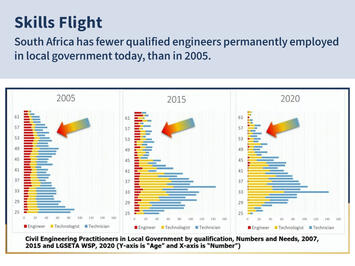
On May 29th, 2024, South Africa will have its 6th democratic election, commemorating 30 years since the end of Apartheid.
This article aims to quantify South Africa's progress from 1994 to 2024. The period will be contrasted, in data, with the Apartheid Government's tenure from 1961 to 1994.
- "99"The selection of 1961 is chosen, because it signifies South Africa's transition to a Republic and the cessation of Queen Elizabeth's role as the head of state. It was the peak of the Apartheid Government’s power."99"
- "99"1994 is the year that Nelson Mandela became President and the beginning of the ANC government-led democracy."99"
The two periods are respectively 34 and 30 years long.
"99"The data presented is sourced from newspaper articles, official sources, our world in data and elsewhere. No aggregate dataset is ever free of variation, so readers should take that into account
The onset of democratic rule was not (as was predicted) a disaster, but the country certainly didn’t live up to its potential.
Democratization
During the last 30 years South Africa has notably undergone significant changes in government, witnessed an expansion of civil and human rights, and an established constitutional order.
It's worth noting that South Africa's democratization process aligns with a broader global trend, albeit slightly lagging behind Spain and Portugal by only 10 years, and East Germany by only a few years.

Urbanization
"99"Perhaps one of the most unmentioned trends is the coincidence of the collapse of the Apartheid government with South Africa's transition to a majority urban population. "99"Nelson Mandela was released from prison "99"around the same time that South Africa became a majority urban population

Unemployment
The rate of unemployment increased under ANC rule and the economy has been struggling to absorb the growing population. The unemployment rate is mostly from unofficial sources and must therefore be read in conjunction with the formal sector employment rate for which better numbers are available. The latter mirrors the “unofficial” unemployment rates and also indicate that the economy’s capacity to employ workers slowed since 1994 compared to the preceding period.

Economic Growth Trends
"99"In his State of the Nation address on 8 February 2024, "99"President Cyril Ramaphosa"99" stated that the economy is three times larger than it was 30 years ago. However, based on data from Stats SA, the real gross domestic product (GDP) amounted to R2.3 trillion in 2015 prices, and by 2023, it had reached R4.6 trillion."99"
Simple division shows that the economy was actually only two times larger than it was 30 years ago. To put it differently, if the economy had truly grown threefold, the real GDP would have been R6.9 trillion, not R4.6 trillion, which falls short by about R2.3 trillion.
Read the rest of this piece at Hügo's Newsletter.
Hügo Krüger is a South African born Structural/Nuclear Engineer, writer and YouTube podcaster, commentating on topics relating to Energy and Geopolitical Matters, Hügo is married to an Iranian born Mathematician and Artist; the couple resides in Paris.
Photo: Charts courtesy Hügo's Newsletter.












